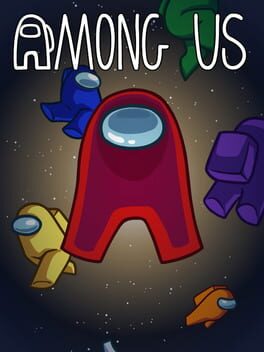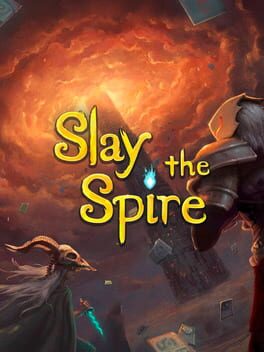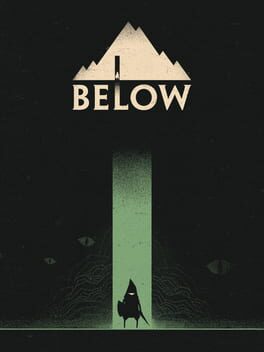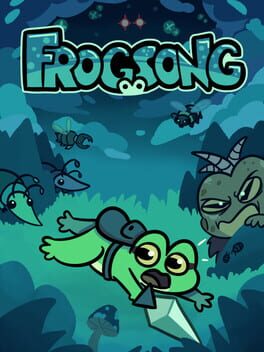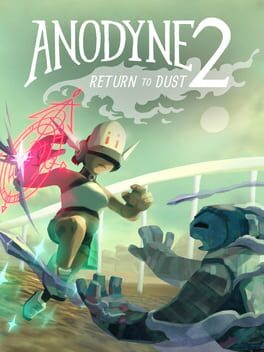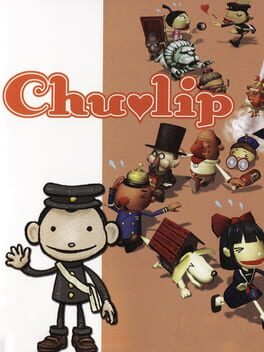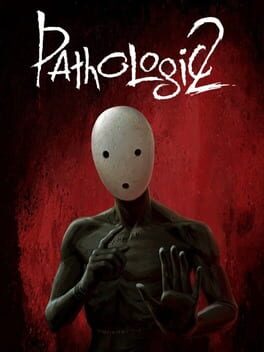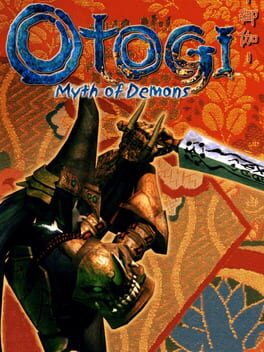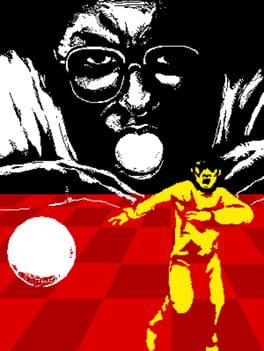10 reviews liked by Clyssa
Bleakshore
2020
Some great music and an intriguing atmosphere are unfortunately not enough to make up for the bloated run time and lack of memorable moments or ideas. I wouldn't mind the simple storytelling, if the game was about half as long. But as it stands now, most of the experience is spent walking between interactables, with VERY LITTLE points of interest along the way. It does manage to fix the Unity stutter though, so it deserves praise for that I suppose.
A Night in the Woods
2014
2:22AM
2014
2:22AM
2014
it does seem sort of like a directionless assemblage of vibes at first, but a true dream logic emerges in the second half as elements and scenes start recurring and lighting up regions of the subconscious. the full moon in the fridge and the endless/beginningless ladder make me tense up my tummy for reasons i can't understand. the overflowing rainbow cup minigame (and accompanying text) is aggressively hopeful in a way that's almost too obvious, but then the bizarre closing city sequence rebalances the tone just right. for my tastes, anyway.
actually, by some mildly cruel technocosmic joke, i can't play that second half on my computer. the game positively refuses not to crash right after the flower sequence every single time, so i had to give up and make do with a handful of youtube playthroughs. i am bummed to have only experienced the ending vicariously, not least because i kinda feel like i've broken the developer's directive to "play alone". but at the same time, the fact that i find myself stuck on the other side of an arbitrary barrier from the most magical part of the game sort of makes it take on a personalized extra layer of melancholy. almost hilariously on-the-nose really. so thanks porting kit for sucking ass i guess <3
it's nothing life-changing, but it would be silly to ask that of it. i'm a little different now; that's what matters.
actually, by some mildly cruel technocosmic joke, i can't play that second half on my computer. the game positively refuses not to crash right after the flower sequence every single time, so i had to give up and make do with a handful of youtube playthroughs. i am bummed to have only experienced the ending vicariously, not least because i kinda feel like i've broken the developer's directive to "play alone". but at the same time, the fact that i find myself stuck on the other side of an arbitrary barrier from the most magical part of the game sort of makes it take on a personalized extra layer of melancholy. almost hilariously on-the-nose really. so thanks porting kit for sucking ass i guess <3
it's nothing life-changing, but it would be silly to ask that of it. i'm a little different now; that's what matters.
Among Us
2018
Among Us is divided into 2 phases: the meeting phase (debating who to vote out) and the roaming phase (doing tasks/killing). Because of this differentiation, the roaming phase does not interfere with aspects of the meeting phase (e.g. conversations). This leads to conversations in the form of debates instead of split-second decisions. In that respect Among Us is closer to the original games in the genre like Mafia and Werewolves. Outside of meetings, conversations are not permitted, which shifts the focus to stealth and intel gathering.
Among Us doesn’t rely on a single intricate mechanic to create depth. It instead uses combinations of game elements to introduce variety. Notably, the meta and psychological aspects enrich the strategic complexity despite the underlying mechanics being simple.
Let us consider the core element of the roaming phase: routing. During this phase, the main focus is deciding where to go. If there were no impostors in the game, this would be a simple task of pathing to finish the current tasks as quickly as possible. The presence of an impostor adds an extra layer of complexity: crewmates need to also gather intel regarding where other players are located. In the first round of the game most of the decisions are based on meta-knowledge about other players: individual strategies for intel gathering, tasks players tend to go for, solitary vs group players, how they tend to play as a Crewmate/Impostor, etc. Another option is to take a risk to clear a player by sticking with them (i.e. using yourself as bait). This is a double-edged sword, however, as the Impostor can choose not to go for an easy kill, gaining the trust of the Crewmate testing him (a.k.a. “marinating”). Such risks play a central role in the game. For instance, players that have vital information would avoid dying at any cost so that they can bring it to the meetings. On the other hand, a Crewmate may also want to die:
- sticking to someone that they suspect is an Impostor to tie their hands even by risking their own life.
- to use the noclip and faster speed of being a ghost to finish their tasks faster
- to clear any suspicion over themselves (so the other Crewmates don’t mistakenly think that they’re an Impostor).
Later on, with information from meetings on who is likely to be an Impostor or a Crewmate, more elaborate routes can be devised. Players can also use meetings to gather information about other players’ tasks in order to predict their routes next round.
The emphasis in meeting phases is on deductive and conversational aspects of the game. The information we get in the roaming phase alone is usually not good enough to paint a picture of how the whole round played out. Thus we need to make assumptions based on some kind of deduction. On top of that, the meetings give us information from other parties in the game, letting us make even more accurate deductions to find the Impostors. With good game knowledge enough crewmates by sharing all information, the impostors would be found. (Except in some weird cases where everyone was just speedrunning their tasks, and not getting any information at all). However, it would be foolish for the impostors to let the crewmates do as they please, and this is where the conversational aspect of the game comes into play. In the scenario that the kills haven't been clean in the game (this means the blame for the kill can't be pinpointed to a single or a small group of people), the impostors won't have any benefit of letting the conversation go on untouched. The most direct way to disrupt the meeting conversation is through lies. With a lie, the information deduction alone would not be able to get to a correct answer, though this depends on the type of the lie. A stronger, more direct lie could change the narrative in a predictable way. It can be used to frame or clear someone. Yet such lies would be easy to trace to the liar. They can be more easily found by conflict with other known information, and thus could backfire. It requires a lot of information from the liar, to be able to pull off such a lie. Also, they have to seem trustworthy since they usually won't get backing for that false information (outside of their impostor partner). More importantly, such lies could be found out in later rounds of the game. While it could pay off this round it could cost the impostors the game in the end. More common and useful lies would be a small change of information somewhere deeper in the deduction. (Further away from clearing or pinning someone as an impostor and more about basic information). The benefit of that lie is that it is hard to trace to the liar, but at the same time, the effect is not as clear. However this could again be used - while it wouldn't frame someone for a kill or clear someone, it is effective in wasting time. It is also a safe lie since it might be considered an error rather than a lie as well. Honourable mention to lying by omission. Depending on the context it could be either of 2 types of lies above, and it could even be safer in most scenarios.
Something even more common than lying is conversation control. There is a time limit on each meeting, and players have one button per game they could use for meetings. Note that some meetings can't be extended by those buttons, as the impostors could win if there is a wrong decision in those meetings. Because of that, it is important to be efficient with information. Getting all information out of all players, and sharing deductions from everyone is easier said than done in that short amount of time. This is why the flow of the conversation is important - and also this is where the impostor has an advantage. The impostors know how their own kill happened (and potentially even the kill of their partner) so they know which information is vital. Thus if they control the flow of the conversation they can waste a lot of time on useless information and deductions out of players. This could be used in combination with a lie and to reinforce the lie, by not letting conflicting information in the conversation. Of course, all of this has its own risk, as being wasteful of conversation time is suspicious. An important thing to be noted is that the impostors' lies and disturbance of conversation have an important side effect. It isn't just the impostors that have to deal with scrutinizing their information and deductions, all information would be scrutinized no matter if it is true or false. This is also dependent on the player itself, other ingame information, as well as psychology and meta. Because of this, the players should also worry about their trustworthiness and not just figuring out the killer. You might have everything figured out, but if you can't say it in the short amount of time and convince others, you can't do anything. Even worse someone might undermine your trustworthiness and bring you down - you have to both be good at deduction and conversations to win. One anomaly from this is that there are actually now reasons for crewmates to lie. Saving time, being trustworthy and even catching lies from another player. This does have an innate risk, but it would be often a better choice than telling the truth.
An important element to the deduction is the intel gathering itself. It was mentioned early, but there is an additional aspect to the intel gathering - attention. There is a lot of information that a single player can gather in a single round, but remembering it all isn't an easy thing to do. If there are more alive players, or if the round itself is long, holding old information becomes trouble. While often this information is discarded, if there have been and early kill, without such information it would be untraceable. The intel generally consists of where we saw each player, where they were headed and what tasks they were doing. The hard part here is that you need to remember all this information relevant to the time. Memorizing this information is relevant to some major event, or just a rough estimate of the time is hard enough on its own. Yet, the player might even opt-in counting seconds to give them more precise information in time. Not only that, but it gives information about kill cooldowns, sabotage timings, precise way to estimate if anyone is faking tasks or not. Also, it could give them information about all the possible positions a player could have reached from a last seen position. This could be vital information in determining who are the plausible killers for some kill. Less decisive, but also important but more difficult, it could also be used to catch a lie. This is done by simulating the path given by some player and comparing how well it fits with the information given by other players. Needless to say, doing deductions, counting precisely, keeping information, and making decisions for the route the player would take all at the same is an extremely difficult task. This is most likely impossible to perfect, so there is always going to be a human error of some kind. Related to this, the tasks themselves, while easy to complete and master, could affect the attention of the player. This could lead to some error either in time management or in the information they are trying to keep in their mind. On a side note, tasks also play into the information gathering aspect of the game. They obscure parts of the screen, leading to less information for a player. Also, they might only see a small feature of a player, and not be able to determine who that player is.
I would like to mention a few elements important to impostors in the roaming phase, on top of the things that have been discussed so far. Impostors have much more freedom in their routing. They still have to follow some rules so that they are not caught faking tasks, or having suspicious routes. But even those rules can be bent because of the lack of perfect information in the game. It still carries some risk, but it is unlikely for them to be caught for that. In turn, they can route solely on gathering intel and unique to impostors - setting up kills and denying information. Impostors have the advantage of bigger vision range - allowing them to gain information, without others gaining information about them back. Sabotages also are a great way of denying information. Lights deny information around the players and are also a good way to set up a kill. Communication is a way to deny long-range information. While not a great way to set up a kill (it is more situational) it is a better sabotage to call in-between kills to screw with information. Vent usages could screw up the timing of some people and the impostor could get a clear for the kill.
What should also be mentioned about the game is that despite its high skill ceiling, it is an easy game to get into. The game involves a lot of risks (which introduces luck) and it also involves expectations of players to play in a certain way. Because of that, the inexperience of newer players leads to smaller expectations on them, which in turn gives them more leeway. They are more likely to be overlooked as impostors, which is a bonus both as impostors and crewmates. Even when people get a better understanding of the newer players, they would still be given more leeway on certain actions as a crewmate. This allows more intricate routes as impostors and makes them more trustworthy, which gives them more of a fight chance.
The meta aspect is one of the important things of the game, as everything ties to it. This is also why the game works much better in a group of the same people rather than random groups. Understanding how other people play and act, and also how other people perceive you, is an essential tool you can use in the game. A unique effect of this is that a lot of your actions are going to have consequences even outside of the game that you are currently in. Thus you need to accommodate your crewmate playstyle to fit your impostor playstyle. Doing the opposite is harder, as the better player you are the more other people demand of your playstyle with a crewmate. Also, you can also set up strategies in several rounds, building trust for specific situations, to use it as an impostor in another round to win. You can't keep using that same strategy constantly, which is why you have to keep planting new seeds and adapting your strategy - you reap what you sow.
The game is not without issues. While all the things discussed so far exist, their relevance depends on the used ruleset. The bright side is that the game opt-in for a lot of options to let the people change the settings. Yet even with those settings, the game is still heavily crewmate sided, especially as players improve. The default settings are even more cremate sided, but that is expected in a game with a lower skill level, where impostors would have more of a chance. As players improve, options become more and more restrictive, and eventually, even house rules have to be introduced against some "cheese" strats that can be used to make the game fair. The maps are also a good example of this, at a high enough level all maps but one are unbalanced.
Sked is heavily shifted in crewmates favour. This is due to the lacklustre vents and the 8-like layout of the map, making it hard to find bodies and deny information. Mira is shifted on the other side. It's all interconnected vents, combined with the decontamination area and the weak information tools for the crewmates lead to this shift.
Polus is the most balanced map of the current 3. Its layout allows for a lot of complexity and room for impostors to play out, while also giving the crewmate strong information tools like vitals, admin and cameras. The only downside for that map is the lack of an equivalent of the oxygen sabotage (it isn't there for lore reasons), which doesn't give impostors a good tool for dealing with groups.
In conclusion, despite its simplistic look, the interaction of the mechanics of Among Us leads to deep gameplay. The game shines in its conversation aspect and has attention intensive tasks (not the ingame tasks) to do outside of the meetings. All those things are combined with an intricate metagame.
Among Us doesn’t rely on a single intricate mechanic to create depth. It instead uses combinations of game elements to introduce variety. Notably, the meta and psychological aspects enrich the strategic complexity despite the underlying mechanics being simple.
Let us consider the core element of the roaming phase: routing. During this phase, the main focus is deciding where to go. If there were no impostors in the game, this would be a simple task of pathing to finish the current tasks as quickly as possible. The presence of an impostor adds an extra layer of complexity: crewmates need to also gather intel regarding where other players are located. In the first round of the game most of the decisions are based on meta-knowledge about other players: individual strategies for intel gathering, tasks players tend to go for, solitary vs group players, how they tend to play as a Crewmate/Impostor, etc. Another option is to take a risk to clear a player by sticking with them (i.e. using yourself as bait). This is a double-edged sword, however, as the Impostor can choose not to go for an easy kill, gaining the trust of the Crewmate testing him (a.k.a. “marinating”). Such risks play a central role in the game. For instance, players that have vital information would avoid dying at any cost so that they can bring it to the meetings. On the other hand, a Crewmate may also want to die:
- sticking to someone that they suspect is an Impostor to tie their hands even by risking their own life.
- to use the noclip and faster speed of being a ghost to finish their tasks faster
- to clear any suspicion over themselves (so the other Crewmates don’t mistakenly think that they’re an Impostor).
Later on, with information from meetings on who is likely to be an Impostor or a Crewmate, more elaborate routes can be devised. Players can also use meetings to gather information about other players’ tasks in order to predict their routes next round.
The emphasis in meeting phases is on deductive and conversational aspects of the game. The information we get in the roaming phase alone is usually not good enough to paint a picture of how the whole round played out. Thus we need to make assumptions based on some kind of deduction. On top of that, the meetings give us information from other parties in the game, letting us make even more accurate deductions to find the Impostors. With good game knowledge enough crewmates by sharing all information, the impostors would be found. (Except in some weird cases where everyone was just speedrunning their tasks, and not getting any information at all). However, it would be foolish for the impostors to let the crewmates do as they please, and this is where the conversational aspect of the game comes into play. In the scenario that the kills haven't been clean in the game (this means the blame for the kill can't be pinpointed to a single or a small group of people), the impostors won't have any benefit of letting the conversation go on untouched. The most direct way to disrupt the meeting conversation is through lies. With a lie, the information deduction alone would not be able to get to a correct answer, though this depends on the type of the lie. A stronger, more direct lie could change the narrative in a predictable way. It can be used to frame or clear someone. Yet such lies would be easy to trace to the liar. They can be more easily found by conflict with other known information, and thus could backfire. It requires a lot of information from the liar, to be able to pull off such a lie. Also, they have to seem trustworthy since they usually won't get backing for that false information (outside of their impostor partner). More importantly, such lies could be found out in later rounds of the game. While it could pay off this round it could cost the impostors the game in the end. More common and useful lies would be a small change of information somewhere deeper in the deduction. (Further away from clearing or pinning someone as an impostor and more about basic information). The benefit of that lie is that it is hard to trace to the liar, but at the same time, the effect is not as clear. However this could again be used - while it wouldn't frame someone for a kill or clear someone, it is effective in wasting time. It is also a safe lie since it might be considered an error rather than a lie as well. Honourable mention to lying by omission. Depending on the context it could be either of 2 types of lies above, and it could even be safer in most scenarios.
Something even more common than lying is conversation control. There is a time limit on each meeting, and players have one button per game they could use for meetings. Note that some meetings can't be extended by those buttons, as the impostors could win if there is a wrong decision in those meetings. Because of that, it is important to be efficient with information. Getting all information out of all players, and sharing deductions from everyone is easier said than done in that short amount of time. This is why the flow of the conversation is important - and also this is where the impostor has an advantage. The impostors know how their own kill happened (and potentially even the kill of their partner) so they know which information is vital. Thus if they control the flow of the conversation they can waste a lot of time on useless information and deductions out of players. This could be used in combination with a lie and to reinforce the lie, by not letting conflicting information in the conversation. Of course, all of this has its own risk, as being wasteful of conversation time is suspicious. An important thing to be noted is that the impostors' lies and disturbance of conversation have an important side effect. It isn't just the impostors that have to deal with scrutinizing their information and deductions, all information would be scrutinized no matter if it is true or false. This is also dependent on the player itself, other ingame information, as well as psychology and meta. Because of this, the players should also worry about their trustworthiness and not just figuring out the killer. You might have everything figured out, but if you can't say it in the short amount of time and convince others, you can't do anything. Even worse someone might undermine your trustworthiness and bring you down - you have to both be good at deduction and conversations to win. One anomaly from this is that there are actually now reasons for crewmates to lie. Saving time, being trustworthy and even catching lies from another player. This does have an innate risk, but it would be often a better choice than telling the truth.
An important element to the deduction is the intel gathering itself. It was mentioned early, but there is an additional aspect to the intel gathering - attention. There is a lot of information that a single player can gather in a single round, but remembering it all isn't an easy thing to do. If there are more alive players, or if the round itself is long, holding old information becomes trouble. While often this information is discarded, if there have been and early kill, without such information it would be untraceable. The intel generally consists of where we saw each player, where they were headed and what tasks they were doing. The hard part here is that you need to remember all this information relevant to the time. Memorizing this information is relevant to some major event, or just a rough estimate of the time is hard enough on its own. Yet, the player might even opt-in counting seconds to give them more precise information in time. Not only that, but it gives information about kill cooldowns, sabotage timings, precise way to estimate if anyone is faking tasks or not. Also, it could give them information about all the possible positions a player could have reached from a last seen position. This could be vital information in determining who are the plausible killers for some kill. Less decisive, but also important but more difficult, it could also be used to catch a lie. This is done by simulating the path given by some player and comparing how well it fits with the information given by other players. Needless to say, doing deductions, counting precisely, keeping information, and making decisions for the route the player would take all at the same is an extremely difficult task. This is most likely impossible to perfect, so there is always going to be a human error of some kind. Related to this, the tasks themselves, while easy to complete and master, could affect the attention of the player. This could lead to some error either in time management or in the information they are trying to keep in their mind. On a side note, tasks also play into the information gathering aspect of the game. They obscure parts of the screen, leading to less information for a player. Also, they might only see a small feature of a player, and not be able to determine who that player is.
I would like to mention a few elements important to impostors in the roaming phase, on top of the things that have been discussed so far. Impostors have much more freedom in their routing. They still have to follow some rules so that they are not caught faking tasks, or having suspicious routes. But even those rules can be bent because of the lack of perfect information in the game. It still carries some risk, but it is unlikely for them to be caught for that. In turn, they can route solely on gathering intel and unique to impostors - setting up kills and denying information. Impostors have the advantage of bigger vision range - allowing them to gain information, without others gaining information about them back. Sabotages also are a great way of denying information. Lights deny information around the players and are also a good way to set up a kill. Communication is a way to deny long-range information. While not a great way to set up a kill (it is more situational) it is a better sabotage to call in-between kills to screw with information. Vent usages could screw up the timing of some people and the impostor could get a clear for the kill.
What should also be mentioned about the game is that despite its high skill ceiling, it is an easy game to get into. The game involves a lot of risks (which introduces luck) and it also involves expectations of players to play in a certain way. Because of that, the inexperience of newer players leads to smaller expectations on them, which in turn gives them more leeway. They are more likely to be overlooked as impostors, which is a bonus both as impostors and crewmates. Even when people get a better understanding of the newer players, they would still be given more leeway on certain actions as a crewmate. This allows more intricate routes as impostors and makes them more trustworthy, which gives them more of a fight chance.
The meta aspect is one of the important things of the game, as everything ties to it. This is also why the game works much better in a group of the same people rather than random groups. Understanding how other people play and act, and also how other people perceive you, is an essential tool you can use in the game. A unique effect of this is that a lot of your actions are going to have consequences even outside of the game that you are currently in. Thus you need to accommodate your crewmate playstyle to fit your impostor playstyle. Doing the opposite is harder, as the better player you are the more other people demand of your playstyle with a crewmate. Also, you can also set up strategies in several rounds, building trust for specific situations, to use it as an impostor in another round to win. You can't keep using that same strategy constantly, which is why you have to keep planting new seeds and adapting your strategy - you reap what you sow.
The game is not without issues. While all the things discussed so far exist, their relevance depends on the used ruleset. The bright side is that the game opt-in for a lot of options to let the people change the settings. Yet even with those settings, the game is still heavily crewmate sided, especially as players improve. The default settings are even more cremate sided, but that is expected in a game with a lower skill level, where impostors would have more of a chance. As players improve, options become more and more restrictive, and eventually, even house rules have to be introduced against some "cheese" strats that can be used to make the game fair. The maps are also a good example of this, at a high enough level all maps but one are unbalanced.
Sked is heavily shifted in crewmates favour. This is due to the lacklustre vents and the 8-like layout of the map, making it hard to find bodies and deny information. Mira is shifted on the other side. It's all interconnected vents, combined with the decontamination area and the weak information tools for the crewmates lead to this shift.
Polus is the most balanced map of the current 3. Its layout allows for a lot of complexity and room for impostors to play out, while also giving the crewmate strong information tools like vitals, admin and cameras. The only downside for that map is the lack of an equivalent of the oxygen sabotage (it isn't there for lore reasons), which doesn't give impostors a good tool for dealing with groups.
In conclusion, despite its simplistic look, the interaction of the mechanics of Among Us leads to deep gameplay. The game shines in its conversation aspect and has attention intensive tasks (not the ingame tasks) to do outside of the meetings. All those things are combined with an intricate metagame.
Slay the Spire
2019
It's telling that most people describe this as a roguelike first and a deck-builder second. "Roguelike", as a concept, has a tendency to dominate whatever core gameplay loop it provides for - and this is no exception. I really liked working out my deck and watching it play out in practice, but the game's insistence on taking my cards away from me every time I made a single serious mistake was, in short, a real fucking pain in the arse.
Really proud of a deck that allows you to summon ten zero-cost swords that stack multiplied damage on top of each other? Too bad, because you came up against the hard counter to that deck and now you are back at square one and must spend twenty minutes gambling your way back to whatever new build the algorithm's dice deem probable for you. Frustrating, time-consuming, and ultimately mindless in a way that invites "one more go" addiction rather than thoughtful pondering of cards. It's a wonder that no one has harnessed roguelikes and real-money gambling yet...
Wouldn't it be more fun to experience the failure of a hard deck-counter and then spend time reconstructing your cards in a way that allows you to overcome that specific scenario, rather than forgetting about the loss and moving on to something else entirely? That's the fundamental fatal flaw with roguelikes, I think - you rarely have to reflect on losses or challenges because your next run is going to go a totally different way. You're passing time until you get the right sword with the right boon against the right enemy.
I beat this after a dozen or so tries - not because I gained mastery of its systems, but simply because I eventually rolled a deterministic environment where I had good cards and the enemy did not have the right skills to counter those cards. No reflection or growth necessary! I would love a version of Slay the Spire that actually disciplined players into learning its intricacies - even a simple stone-set RPG of intentional design would probably trump the computed 52-card pickup that the game offers at the moment. Despite my natural inclination against the nature of traditional RPGs, I still want an overworld and towns and dungeons that I can use to explore Spire's cards and their interplay... They are so well-crafted, but the game offers surprisingly few incentives or avenues for exploring their depth. Let's break free from the roguelike legacy!!
Really proud of a deck that allows you to summon ten zero-cost swords that stack multiplied damage on top of each other? Too bad, because you came up against the hard counter to that deck and now you are back at square one and must spend twenty minutes gambling your way back to whatever new build the algorithm's dice deem probable for you. Frustrating, time-consuming, and ultimately mindless in a way that invites "one more go" addiction rather than thoughtful pondering of cards. It's a wonder that no one has harnessed roguelikes and real-money gambling yet...
Wouldn't it be more fun to experience the failure of a hard deck-counter and then spend time reconstructing your cards in a way that allows you to overcome that specific scenario, rather than forgetting about the loss and moving on to something else entirely? That's the fundamental fatal flaw with roguelikes, I think - you rarely have to reflect on losses or challenges because your next run is going to go a totally different way. You're passing time until you get the right sword with the right boon against the right enemy.
I beat this after a dozen or so tries - not because I gained mastery of its systems, but simply because I eventually rolled a deterministic environment where I had good cards and the enemy did not have the right skills to counter those cards. No reflection or growth necessary! I would love a version of Slay the Spire that actually disciplined players into learning its intricacies - even a simple stone-set RPG of intentional design would probably trump the computed 52-card pickup that the game offers at the moment. Despite my natural inclination against the nature of traditional RPGs, I still want an overworld and towns and dungeons that I can use to explore Spire's cards and their interplay... They are so well-crafted, but the game offers surprisingly few incentives or avenues for exploring their depth. Let's break free from the roguelike legacy!!
Below
2018
It kind of feels like this game was designed by an alien that has only ever played one video game (and that video game was Dark Souls)
v
v
v
v
v
I cant actually figure out who the audience for this game is supposed to be. Its not for the roguelike audience, cuz the randomized elements dont extend to the player character. Its not for the survival audience cuz this game is extremely punishing on the action side of things. Its not even for Souls fans cuz the game wrings your neck over resource management. The games way too long to be this austere yet demanding of an experience.
Some thoughts:
- I think the only purely positive thing I can say about Below (and I wouldnt be the first to say it), is the Art Direction and Atmosphere are on point. This includes the macro things, like the smooth crisp “Geometry-Norwegian” graphics style as well as micro things - like when youre in a cave full of scrambling weird dudes but some of the weird dudes dont scramble on the ground. They stand up, stay at a distance, regard you with some sort of cautious intelligence, respond with some kind of comtempt for you killing the scramblers. Its pretty convincing. Many things were probably inspired by Dark Souls here but the attention to detail with the setting might be the one they interpreted correctly.
- The balance however, is incomprehensible. If the design of the game was a text, it would be written in some ancient Babylonian language. Im gonna break this down into finer points to try and articulate this wicked weave of bullshit.
-
>>> Areas are way too large for a game that sends you back to the beginning of the island every time you die. Even with shortcuts unlocked, it adds alot of tedious travel (and therefore increases the punishment) to the process.
-
>>> The crafting process is essential to your ability to survive the game and the size of the inventory makes this incredibly unsustainable. You will have a hard time holding on to everything you need and you will have a hard time recouping the cost of spending items - especially if you still end up dying.
-
>>> The game had the balls to have survival mechanics in a world where you die in 4 hits. Your hunger and thirst drain empty every 5 minutes and you cant cook (craft with food) just anywhere. Everyone hates this, everyone exclusively recommends doing Exploration Mode but this doesnt get rid of the temperature component either.
-
>>> The UI is simplistic (pretty) but incredibly aggravating for a crafting system where you need to heal or eat often. “Trial and error” means submitting to the tedious process of dying, respawning and then recouping more than you otherwise actually need to.
-
>>> On top of all these base systems, the game is just a shithead. Tons of traps to complicate your survival prospects, for some reason they put a suicide run segment where you have to finish a gauntlet before freezing to death only 1/5th of the way through the game, they will starve you of essential resources (not figuratively essential either) for entire floors. There is a segment that represents an entire 20% of the game where combat is a guaranteed way to get killed and sent back up to the top. Some people call games like Dark Souls unforgiving but this game actually desires to spite you.
- With all that being said about the design, the game also has the balls to necessitate players re-explore every area to truly acquire all the items needed to complete the game. This isnt some optional true ending type shit, you need to fumble through the game twice in order to beat it at all. Luckily, fortunately, blissfully, if you made it down to the bottom once you likely have created enough stability for yourself that going through it again isnt as big an ask - but Im just floored by the ego on this game.
- The juice isnt even worth the squeeze. There isnt any real sense of reward for persevering in Below. I get the feeling someone at Capy played Dark Souls and went “Ahh yes…. mysterious….” and then made a game that was nothing but Vague. But that vagueness spoils the game, making crucial systems cumbersome and diluting any sense of achievement (cuz your reward is more Vagueness). Dark Souls “delayed gratification”, it didnt “delete gratification” - and this sucks so much more because of how unrestrained Belows sense of punishment is. Youre hit twice as hard for half as much and that sucks.
Minor Thoughts:
- Why does this lil mfing guy wake up and get up so slow? You have to suffer his slow ass wake up animation twice every time you go to the Dream Room (once when you enter and once when you exit), why did they do this? Why do they hate Gamers? Why do they hate me?
- I think this game expects you to care about the world way sooner than you actually have incentive to (a big no-no). BUT. It does get cool eventually.
- Why are all the cutscenes so slow? Why is everything so mfing slow??
- Damn the ending sucks.
v
v
v
v
v
I cant actually figure out who the audience for this game is supposed to be. Its not for the roguelike audience, cuz the randomized elements dont extend to the player character. Its not for the survival audience cuz this game is extremely punishing on the action side of things. Its not even for Souls fans cuz the game wrings your neck over resource management. The games way too long to be this austere yet demanding of an experience.
Some thoughts:
- I think the only purely positive thing I can say about Below (and I wouldnt be the first to say it), is the Art Direction and Atmosphere are on point. This includes the macro things, like the smooth crisp “Geometry-Norwegian” graphics style as well as micro things - like when youre in a cave full of scrambling weird dudes but some of the weird dudes dont scramble on the ground. They stand up, stay at a distance, regard you with some sort of cautious intelligence, respond with some kind of comtempt for you killing the scramblers. Its pretty convincing. Many things were probably inspired by Dark Souls here but the attention to detail with the setting might be the one they interpreted correctly.
- The balance however, is incomprehensible. If the design of the game was a text, it would be written in some ancient Babylonian language. Im gonna break this down into finer points to try and articulate this wicked weave of bullshit.
-
>>> Areas are way too large for a game that sends you back to the beginning of the island every time you die. Even with shortcuts unlocked, it adds alot of tedious travel (and therefore increases the punishment) to the process.
-
>>> The crafting process is essential to your ability to survive the game and the size of the inventory makes this incredibly unsustainable. You will have a hard time holding on to everything you need and you will have a hard time recouping the cost of spending items - especially if you still end up dying.
-
>>> The game had the balls to have survival mechanics in a world where you die in 4 hits. Your hunger and thirst drain empty every 5 minutes and you cant cook (craft with food) just anywhere. Everyone hates this, everyone exclusively recommends doing Exploration Mode but this doesnt get rid of the temperature component either.
-
>>> The UI is simplistic (pretty) but incredibly aggravating for a crafting system where you need to heal or eat often. “Trial and error” means submitting to the tedious process of dying, respawning and then recouping more than you otherwise actually need to.
-
>>> On top of all these base systems, the game is just a shithead. Tons of traps to complicate your survival prospects, for some reason they put a suicide run segment where you have to finish a gauntlet before freezing to death only 1/5th of the way through the game, they will starve you of essential resources (not figuratively essential either) for entire floors. There is a segment that represents an entire 20% of the game where combat is a guaranteed way to get killed and sent back up to the top. Some people call games like Dark Souls unforgiving but this game actually desires to spite you.
- With all that being said about the design, the game also has the balls to necessitate players re-explore every area to truly acquire all the items needed to complete the game. This isnt some optional true ending type shit, you need to fumble through the game twice in order to beat it at all. Luckily, fortunately, blissfully, if you made it down to the bottom once you likely have created enough stability for yourself that going through it again isnt as big an ask - but Im just floored by the ego on this game.
- The juice isnt even worth the squeeze. There isnt any real sense of reward for persevering in Below. I get the feeling someone at Capy played Dark Souls and went “Ahh yes…. mysterious….” and then made a game that was nothing but Vague. But that vagueness spoils the game, making crucial systems cumbersome and diluting any sense of achievement (cuz your reward is more Vagueness). Dark Souls “delayed gratification”, it didnt “delete gratification” - and this sucks so much more because of how unrestrained Belows sense of punishment is. Youre hit twice as hard for half as much and that sucks.
Minor Thoughts:
- Why does this lil mfing guy wake up and get up so slow? You have to suffer his slow ass wake up animation twice every time you go to the Dream Room (once when you enter and once when you exit), why did they do this? Why do they hate Gamers? Why do they hate me?
- I think this game expects you to care about the world way sooner than you actually have incentive to (a big no-no). BUT. It does get cool eventually.
- Why are all the cutscenes so slow? Why is everything so mfing slow??
- Damn the ending sucks.
Balatro
2024
Balatro
2024
7 lists liked by Clyssa
by Whom |
224 Games
by ResidentMelville |
1394 Games
by tombo |
96 Games
by Jellyghost |
48 Games
by Ardwyw_mp3 |
264 Games




